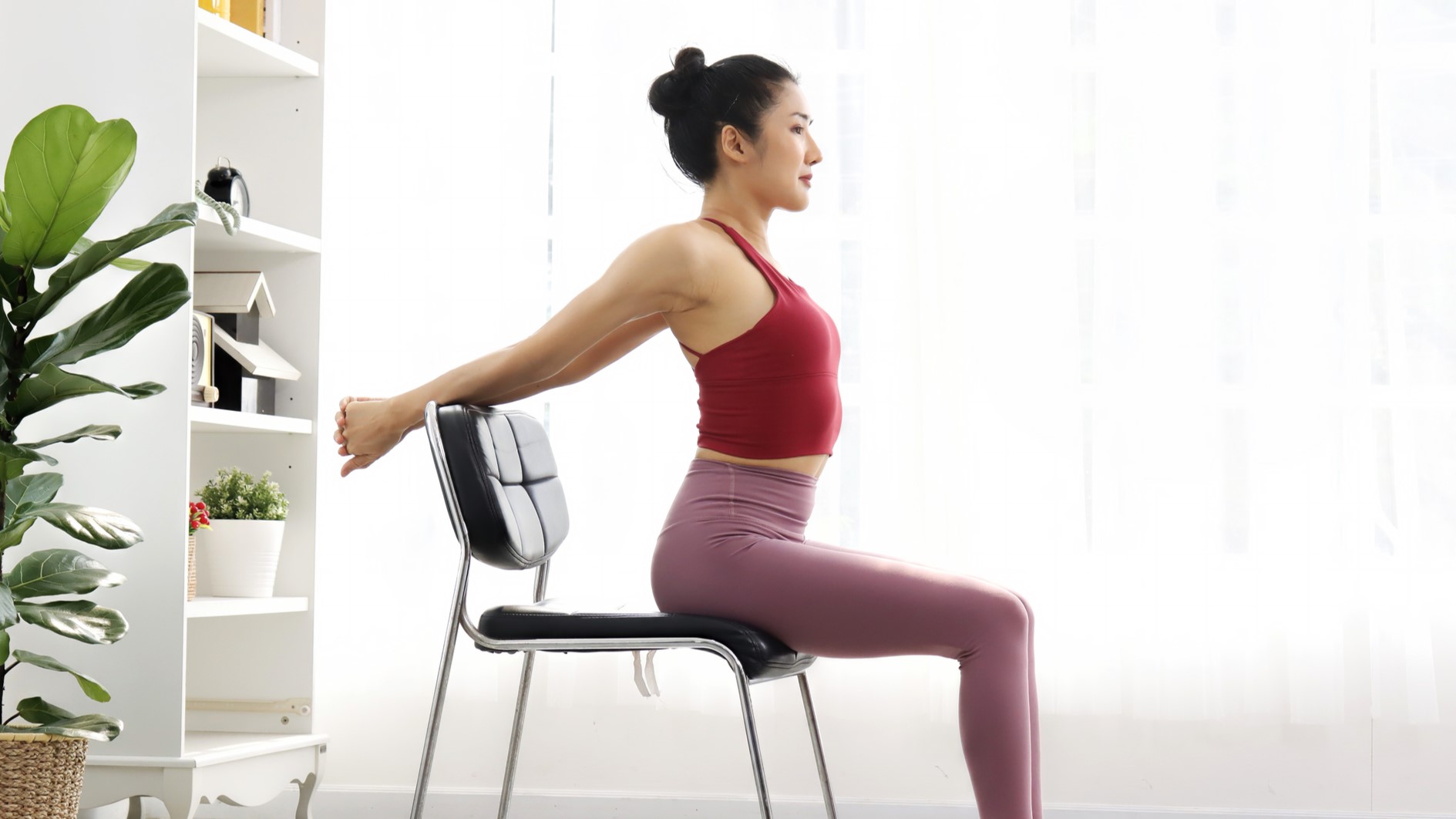
I’ve said it once, and I’ll say it again — when it comes to sculpting visible abs, you’ll need to focus on your overall body fat percentage, rather than adding endless sit-ups or crunches to your routine. Your diet, cardio levels, stress and hormones can all affect your body fat percentage, but you can work out how to calculate yours, and why it matters, here on Tom’s Guide.
That said, if you are looking to strengthen your abdominal muscles, there are several benefits of doing so, none of which are aesthetic. Your abdominal muscles protect your spine from injury, so making sure they’re strong can help reduce lower back pain. Your abs also hold your torso upright when you move, so strong abdominal muscles can improve your posture, and make daily tasks like carrying shopping a little easier.
But what about seated ab exercises? If you struggle to get down to the floor for your ab workouts, you’re pregnant, or looking for an ab exercise you can do at your desk between meetings, I’ve found the answer. Seated lean-backs engage your core, without having to unroll your exercise mat, and I added 50 reps a day to my routine to learn more about the exercise. Read on to find out what happened.
As a reminder, if you’re new to exercise, you’re pregnant, or you’re returning to ab workouts following an injury, it’s always a good idea to check with a personal trainer before taking on a new routine. What’s right for me might not be right for you and your body, and moving with bad form can put you at risk of an injury.
How to do a seated lean-back
Here’s how to do a seated lean-back with perfect form:
- Start by sitting on the edge of your chair — for this exercise, you’ll want a sturdy chair that allows you to put your feet flat on the floor. Make sure the chair does not have wheels.
- With your feet flat on the floor, either cross your arms over your chest or hold them out directly in front of you. If you want to add to the challenge, hold one of the best adjustable dumbbells in both hands.
- Engage your core, thinking about sucking your belly button into your spine, and slowly lowering your torso back towards the chair’s backrest, keeping your spine straight.
- Pause when you feel you have leaned as far back as you can — you should feel your abs working hard to hold you here.
- Reverse the movement and return to your starting position.
- That’s one rep.
As with most of the best ab exercises, the key to getting the most out of this exercise is to move slowly and with control. Your core muscles should be working hard against gravity at the bottom of this move, with your torso leaning back, so make sure you pause for a few seconds.
I did seated lean-backs every day for a week — here’s what happened to my body
Here’s what happened when I added the seated lean-back to my daily exercise routine for a week:
I was surprised by how hard my core had to work
This isn’t my first attempt at a seated ab workout, but every time I add seated ab workouts to my routine I’m surprised by how hard my core has to work. I attempted this challenge when I was seven months pregnant, so lying down flat on an exercise mat wasn’t an option, and I loved the feeling of my abs shaking after 50 reps.
As with most of these week-long challenges we sign up to on the Tom’s Guide fitness desk, by the end of the week I was getting bored. I managed to mix things up by holding a light dumbbell between my hands one day, or hovering my feet a few inches off the floor to really force my core to work harder.
I had to focus on keeping my back straight
You don’t want your back to arch in this move — it should remain straight throughout as if you’re holding a plank. To do this, you really need to focus on engaging your core muscles by sucking your belly button into your spine.
I videoed my form on day two and spotted that after 30-40 reps, I started to rush and arch my back. For the rest of the week, I broke the exercise up into manageable chunks between or during meetings to ensure I was moving with good form (just make sure you turn your camera off).
Moving slowly is key
Without sounding like a broken record, the hardest part of this exercise is when your torso is leaning back. To up the intensity, I would hold here and count to three, to really feel my deep core muscles working hard. This is a technique called time under tension, which is predominantly found in weightlifting, but really means increasing the amount of time a muscle is held under tension when working.
My verdict? This was a great ab exercise to add to my routine, and while I didn’t notice any visible changes to my core after one week (both being pregnant, and because the human body sadly doesn’t build muscle that quickly), I really felt this one in my midsection. What are you waiting for — try this to add some movement to your working day, and reap the benefits in your core!







